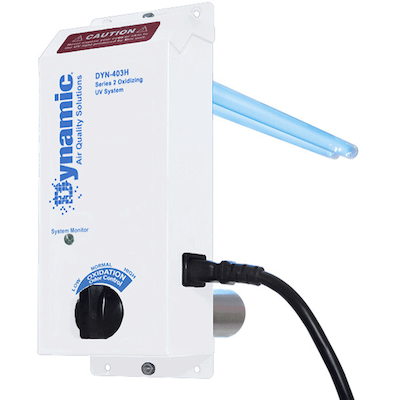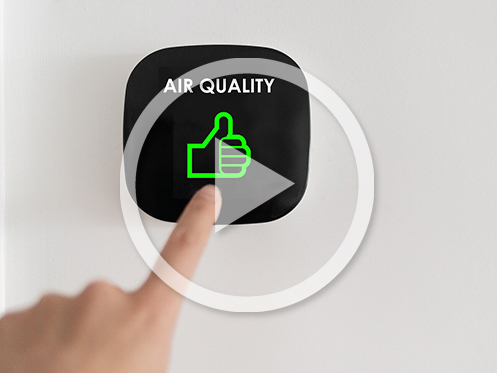Updated January 18, 2024
A home humidifier can be a valuable asset for homeowners. It is adorable during the winter when the air is dry. Since it puts moisture into your home’s air, the device may be helpful for things like static electricity and even dry skin. Before you install a home humidifier, please take a few minutes to learn the basics to ensure that it is an ideal appliance for your family.
Home Humidifier Benefits
Home humidifiers improve home comfort. However, there are other benefits that you might not think about.
Proper humidity levels promote better air quality. This is because humidity helps to decrease allergens, dust, and other airborne particles. This can be particularly helpful for people who have respiratory illnesses or allergies.
Dry air may irritate the respiratory tract, making breathing more difficult for those with respiratory illnesses such as bronchitis, asthma, and sinusitis. Moistening the air allows for easier breathing and a decrease in symptoms.
Humid air may help to reduce the risk of your family catching common viruses, such as the flu or common cold. This is because moist air reduces airborne virus transmission.
Your skin can benefit from higher humidity levels. During the cold months, it is common for your skin to get drier. With a home humidity system, your skin may be less flaky and dry no matter how cold and dry it is outside.
When you can breathe more quickly, you can sleep more easily. Heightened humidity levels in your home can reduce snoring, prevent nasal passage and throat drying, and promote more restful sleep.
Keeping your home at the proper humidity level could benefit your wood floors and furnishings. This is because it helps to prevent wood items from cracking, drying out, or warping.
Home Humidifier Types
There are different types of home humidifiers. To make the right choice, consider your budget, the size of your room, and your personal preferences.
Evaporative humidifiers transfer air over a wet filter or wick using a fan. This causes the water to evaporate once it is in the air. Compared to other humidifier options, this one tends to use less electricity. You must change the filter or wick regularly to stop bacteria and mold from growing.
Ultrasonic humidifiers create a fine water mist via ultrasonic vibrations. Some units can mist both cool and warm water into the air. This type is usually energy-efficient and quiet, making it an option for bedrooms where more humidity is beneficial but limited noise is needed to rest.
Cool mist humidifiers are ideal if you have pets and children. The water mist that they put into the air is at room temperature. You can usually find these in both ultrasonic and evaporative types.
Warm mist humidifiers produce steam to humidify the air. This can be a good choice for people with respiratory issues. However, be aware if you have children since the steam can be hot and cause burns.
A central humidifier works with your home’s HVAC system. It allows you to maintain a constant level of humidity throughout your home. A professional will need to do any necessary installation and maintenance.
Placement and Usage
Use it properly and put it in the right place to get the most out of your home humidifier. First, make sure the size is ideal for your room. These usually have square footage recommendations, so take measurements to ensure the one that interests you will cover the space where you intend to put it.
Check out the manufacturer’s recommendations for cleaning. Weekly cleaning is often necessary for a small unit to prevent bacteria and mold growth. However, for a whole house unit, a professional may only need to come once a year to tackle maintenance and cleaning.
If you are using a small unit, place it on something to elevate it. The closer it is to the ceiling, the easier it will disperse moisture throughout your space. Please do not put it so close to the ceiling that you notice moisture stains developing.
You have to use the proper water in your humidifier. The general recommendation is either demineralized or distilled water. If you use tap water, the minerals can get into the air, aggravating symptoms for some people with respiratory illnesses. It can also leave white dust on surfaces throughout your home.
Replace the water every day or two so it does not become stagnant. If you allow stagnant water in the unit, it could lead to bacteria and mold growth.
Think of your family when you are deciding where to place the unit. You want to ensure kids or pets cannot knock it over since some have a risk of burns. This could also lead to the unit breaking when it hits the floor.
Make sure that you are not adding too much humidity to your space. Overly high humidity levels could put your home at risk for mold and mildew and damage your furnishings and electronics. A professional can help you choose the right levels, but you might also want to monitor humidity levels on your own with a hygrometer.
Maintaining Your Home Humidifier
You should monitor your humidifier for signs that it is starting to fail. For example, it may not be putting out enough humidity or have visible cracks. To ensure your unit remains safe, you must replace any bad parts immediately before using it again.
If the unit has pads or filters, you must replace them regularly. Check the manufacturer’s recommendations for how often this maintenance task is necessary.
Keep an eye out for leaks. Pay special attention to the water tank to ensure no water is dripping. If you notice a leak, immediately turn off and unplug the unit. Have a professional inspect and repair it before you use it again.
If you do not use your humidifier for a while, you must store it properly, or else there is a risk of mold growth. Please keep it in a dry and cool place. Ensure no moisture is left in the unit before putting it up.
A home humidifier can improve the comfort and air quality inside your home. The key is to contact professionals like us to walk you through the process so everything goes smoothly. Once we help you with this, our team of experts can assist you with numerous other elements, such as your home’s plumbing and electrical systems. You can also call us when you need help with your home’s HVAC system.
Contact Golden Rule today to discuss our home humidifier services.
Contact Us Today for Indoor Air Quality Service!
If you found this post helpful, check out some other budget-saving tips:



